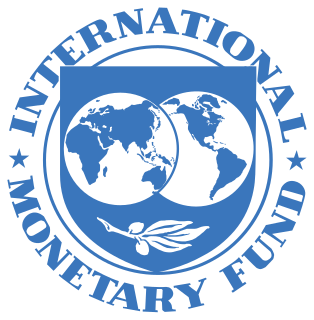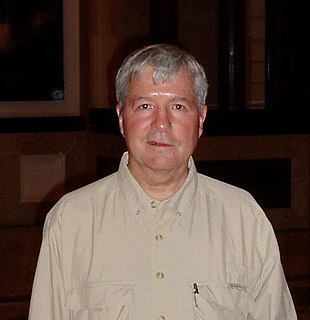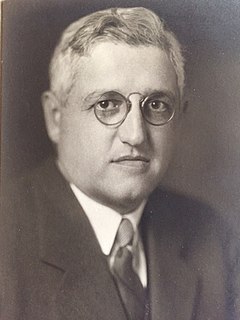
A central bank, reserve bank, or monetary authority is an institution that manages the currency and monetary policy of a state or formal monetary union, and oversees their commercial banking system. In contrast to a commercial bank, a central bank possesses a monopoly on increasing the monetary base. Most central banks also have supervisory and regulatory powers to ensure the stability of member institutions, to prevent bank runs, and to discourage reckless or fraudulent behavior by member banks.

The International Monetary Fund (IMF) is an international financial institution, headquartered in Washington, D.C., consisting of 190 countries working to foster global monetary cooperation, secure financial stability, facilitate international trade, promote high employment and sustainable economic growth, and reduce poverty around the world while periodically depending on the World Bank for its resources. Formed in 1944, started in 27 November 1945, at the Bretton Woods Conference primarily by the ideas of Harry Dexter White and John Maynard Keynes, it came into formal existence in 1945 with 29 member countries and the goal of reconstructing the international monetary system. It now plays a central role in the management of balance of payments difficulties and international financial crises. Countries contribute funds to a pool through a quota system from which countries experiencing balance of payments problems can borrow money. As of 2016, the fund had XDR 477 billion.

The Bank for International Settlements (BIS) is an international financial institution owned by central banks that "fosters international monetary and financial cooperation and serves as a bank for central banks". The BIS carries out its work through its meetings, programmes and through the Basel Process – hosting international groups pursuing global financial stability and facilitating their interaction. It also provides banking services, but only to central banks and other international organizations. It is based in Basel, Switzerland, with representative offices in Hong Kong and Mexico City.

The Economic Cooperation Organization or ECO is an Asian political and economic intergovernmental organization which was founded in 1985 in Tehran by the leaders of Iran, Pakistan, and Turkey. It provides a platform to discuss ways to improve development and promote trade and investment opportunities. The ECO is an ad hoc organisation under the United Nations Charter. The objective is to establish a single market for goods and services, much like the European Union. The ECO's secretariat and cultural department are located in Iran, its economic bureau is in Turkey and its scientific bureau is situated in Pakistan.

The Bangko Sentral ng Pilipinas is the central bank of the Philippines. It was established on July 3, 1993, pursuant to the provision of Republic Act 7653 or the New Central Bank Act of 1993 as amended by Republic Act 11211 or the New Central Bank Act of 2019.

The Intergovernmental Group of Twenty-Four on International Monetary Affairs and Development, or The Group of 24 (G-24) was established in 1971 as a chapter of the Group of 77 in order to help coordinate the positions of developing countries on international monetary and development finance issues, as well as and to ensure that their interests are adequately represented in negotiations on international monetary matters. Though originally named after the number of founding Member States, it now has 28 Members. Although the G-24 officially has 28 member countries, any member of the G-77 can join discussions.

The Federal Reserve Bank of St. Louis is one of 12 regional Reserve Banks that, along with the Board of Governors in Washington, D.C., make up the United States' central bank. Missouri is the only state to have two main Federal Reserve Banks. Located in downtown St. Louis, the St. Louis Fed is the headquarters of the Eighth Federal Reserve District, which includes the state of Arkansas and portions of Illinois, Indiana, Kentucky, Mississippi, the eastern half of Missouri and West Tennessee. It has branches in Little Rock, Louisville and Memphis. Its building, at 411 Locust Street, was designed by St. Louis firm Mauran, Russell & Crowell in 1924. The Eighth District serves as a center for local, national and global economic research, and provides the following services: supervisory and regulatory services to state-member banks and bank holding companies; cash and coin-handling for the District and beyond; economic education; and community development resources.

The Central Bank of Iran (CBI), also known as Bank Markazi, officially the Central Bank of the Islamic Republic of Iran is the central bank of Iran.

Axel Alfred Weber is a German economist, professor, and banker. He is currently a board member and chairman of Swiss investment bank and financial services company, UBS Group AG.

Mahmoud Mohieldin, born on 15 January 1965 in Egypt, is the World Bank Group's Senior Vice President for the 2030 Development Agenda, UN Relations, and Partnerships. He serves as a Board member on the Global Partnership for Sustainable Development Data, as well as an observer to the EU Multi-Stakeholder Platform for the SDGs. Dr. Mohieldin previously served as Corporate Secretary, President's Special Envoy, and Managing Director for the World Bank Group.

The Central Bank of the United Arab Emirates is the state institution responsible for managing the currency, monetary policy and banking regulation in the United Arab Emirates (UAE).

Seyed Mohammad Hossein Adeli is an Iranian politician, diplomat, economist and academic. He was the Secretary General of the Gas Exporting Countries Forum from 2014 until 2018. He is the founder of Ravand Institute. He was the chairman of Iran's first Investment Bank Amin Investment Bank until 2011. In May 2014, he received the Order of the Rising Sun from the Emperor of Japan, Akihito, the highest Order given to any Iranian National for his important role in the Iran–Japan Relation.
Malcolm D. Knight is a Canadian economist, policymaker and banker. He is currently Visiting Professor of Finance at the London School of Economics and Political Science and a Distinguished Fellow at the Center for International Governance Innovation. From 2008 to 2012, Knight was Vice Chairman of Deutsche Bank Group where he was responsible for developing and coordinating the bank's global approach to issues in financial regulation, supervision, and financial stability. He served as general manager of the Bank for International Settlements from 2003 to 2008 and as Senior Deputy Governor of the Bank of Canada (1999-2003), after holding senior positions at the International Monetary Fund (1975-1999).

Mahamudu Bawumia is a Ghanaian economist and banker and the current Vice President of Ghana. He assumed office on 7 January 2017.
Nerses Yeritsyan is deputy president of the Central Bank of Armenia and former Minister of Economy. Since Armenia's independence he has actively been involved in the design and implementation of economic policies in Armenia.
Yaga Venugopal Reddy is an Indian economist and a retired Indian Administrative Service (IAS) officer of the 1964 batch belonging to Andhra Pradesh cadre. Reddy served as governor of the Reserve Bank of India (RBI) from 6 September 2003 until 5 September 2008.

Warren L. Coats, Jr., is an economist specializing in monetary policy. He retired from the International Monetary Fund in May 2003 to join the board of directors of the Cayman Islands Monetary Authority. He is president of Economic Consulting, providing technical assistance to central banks, and until recently was adviser to the central banks of Afghanistan and Kazakhstan.

Emanuel Alexsndrovich Goldenweiser was born in Kiev, Russia, on July 31, 1883. His father was a prominent member of the Kiev bar. The family was modestly wealthy and cosmopolitan. Upon graduation from the First Kiev Gymnasium in 1902, Emanuel followed his older brother, Alexander (Shura), to the United States. He received a BA from Columbia University in 1903, and MA from Cornell in 1905, and a PhD from Cornell in 1907. His PhD thesis subject was “Russian Immigration to the U.S.” He became a U.S. citizen in the same year.
Luc Laeven is a Dutch economist, Director-General of the Research Department of the European Central Bank 2015-present. Previously he held senior posts at the International Monetary Fund and the World Bank. He was also a Professor Finance at Tilburg University from 2009 to 2019. He has been a Research fellow at the Centre for Economic Policy Research in London since 2009.















